Pakistan’s denials about being uninvolved in the Pahalgam terror attack have been unconvincing to say the least.
India on Wednesday launched Operation Sindoor – targetting nine locations in Pakistan and Pakistan-occupied Kashmir.
Around 100 terrorists from Jaish-e-Mohammed (JeM), Lashkar-e-Taiba (LeT), and Hizbul Mujahideen have been killed in the strikes.
However, what has gained even more attention after the strikes is that the funeral of the terrorists was attended by a top Lashkar-e-Taiba commander as well as several members of the Pakistan Army.
Now, Foreign Secretary Vikram Misri has highlighted the photograph in a press briefing while accusing Pakistan of trying to ‘wash its hands’ off terrorism.
But what did Misri say? And what do we know about the photo?
Let’s take a closer look:
What did Misri say?
Misri, addressing a briefing on Operation Sindoor on Thursday, wondered why Pakistani terrorists were being given state funerals, in the presence of military officials.
Catch all the live updates from Operation Sindoor here
Misri held up the picture showing Hafiz Abdul Rauf, a US-designated global terrorist and high-level Lashkar-e-Taiba (LeT) commander, leading funeral prayers for those who died in the Indian missile strikes.
The picture also showed Pakistan Army personnel attending the funeral.
🔴 #BREAKING Hafiz Abdul Rauf, a US-designated global terrorist and a Lashkar e Taiba commander, leads funeral prayers for those killed in India’s strikes pic.twitter.com/YG6W9vuSWp
— Taha Siddiqui (@TahaSSiddiqui) May 7, 2025
“It’s also odd that the funerals of civilians are carried out with the coffins being draped in Pakistani flags and state honours being accorded. As far as we are concerned, the individuals eliminated at these facilities were terrorists. Giving terrorists state funerals may be a practice in Pakistan. It doesn’t seem to make much sense to us,” Misri said.
“We have made the point very clearly that all attacks on the morning of May 7 were against carefully selected terrorist infrastructure, terrorist targets. In fact, seeing some of the coverage of the after effects of these strikes, including the funerals for the terrorists that are held yesterday, I think a lot of you have seen the reports and the coverage on media," Misri said.
“If only civilians, if any civilians were killed in these attacks, I wonder what message this picture actually sends to all of you. This is a question that is worth asking,” Misri added.
Misri also pointed out that Pakistan had opposed the mention of ‘The Resistance Front’ (TRF) in the UNSC, despite the fact that the TRF, a front for LeT, had claimed responsibility for the terror attack, not once but twice.
“When talks were going on about the Pahalgam at the UNSC, Pakistan opposed the role of TRF (The Resistance Front). This is after TRF claimed the responsibility of the attack not once, but twice… Col Qureshi and Wing Commander Singh clearly said yesterday as well as today, that India’s response is non-escalatory, precise, and measured,” Misri said.
Who is Rauf?
Rauf is the chairman of Al Khidmat – a front group of the LeT.
He has been part of the top LeT leadership since 1999.
He has been implicated in facilitating LeT’s operations, including the high-profile attack on Mumbai in 2008 which left over a hundred dead and the 2006 serial blasts.
As per News18, Rauf is frequently seen at public events in Pakistan where he represent LeT front groups.
He has held multiple roles within the LeT.
In 2003, Rauf was appointed the LeT’s Director of Public Service.
In 2008, he was appointed the LeT’s Director of Humanitarian Relief.
He has also been a public spokesman for the terror outfit.
Rauf also ran propaganda campaigns for the Falah-i Insaniat Foundation (FIF) — an LeT front group.
In 2008, Rauf was sent by LeT chief Hafiz Muhammad Saeed with a delegation to oversee the terror group’s operations in Bajaur.
The US declared Rauf as a Specially Designated Global Terrorist (SDGT) in 2010.
The US then froze his assets and banned any of its citizens from engaging with Rauf.
Did Pakistani forces attend funeral of terrorists killed in Operation Sindoor?
A large number of Pakistan Army and police personnel were seen at the funerals of terrorists killed during India’s cross-border strike, Operation Sindoor, according to reports by PTI and CNN-News18.
Notably, the funeral prayer for Qari Abdul Malik, Khalid, and Mudassir was held in Muridke under heavy security.
The funeral prayer was led by Rauf and was reportedly attended by Pakistani Army personnel.
#BreakingNews | All the people in uniform have turned up for the funeral of all the terrorists who were eliminated in Operation Sindoor
— News18 (@CNNnews18) May 7, 2025
Group Capt MJA Vinod & Lt Gen (R.) Rakesh Sharma share views@AnchorAnandN | #TheRightStand #IndianAirForce #IndianArmy #JaiHind pic.twitter.com/Ww5fxBc1jV
Several members of the civil bureaucracy were also present at the funeral, PTI quoted Tabish Qayyum, spokesperson for the Pakistan Markazi Muslim League, political wing of the banned Jamaat-ud-Dawah (JuD), as saying.
As per reports, Pakistan Army officers, police, civil officials, and members of the JuD, which was founded by Hafiz Saeed, attended the funeral.
Videos from the scene showed coffins being carried, some draped in the Pakistani flag, with Army personnel participating in the procession.
Sharing the video, Shiv Sena MP Milind Deora posted: “Plotting. Assisting. Killing. Inciting. Shielding. Training. Arming. Nurturing. That’s what P-A-K-I-S-T-A-N really stands for. Even after 9/11, 26/11, Abbottabad & now #Pahalgam, how much more proof does the world need?”
Pakistan Prime Minister Shehbaz Sharif’s response, calling the strikes an “act of war” and warning of retaliation, has also come under increased scrutiny.
Adding to this, Pakistan’s Defence Minister Khawaja Asif recently admitted that the country had for years supported and funded terror groups, calling it “dirty work” done for foreign interests.
Will Pakistan retaliate?
In a late-night address on Wednesday, Pakistan PM Shehbaz Sharif said: “We make this pledge, that we will avenge each drop of the blood of these martyrs.”
Earlier the same day, Pakistan’s national security council met and authorised the military to respond in defence of the country’s sovereignty “at a time, place, and manner of its choosing”.
ALSO READ | From Operation Vijay to Operation Sindoor: India’s military operations against Pakistan have evolved
Meanwhile, Pakistan launched one of the most intense rounds of artillery and mortar shelling seen in years, targeting forward villages along the Line of Control in Jammu and Kashmir.
CNN-News18 reported that at least 15 people, including four children and a soldier, were killed, and 57 others were injured.
The White Knight Corps, the official handle of the Indian Army’s 16 Corps, confirmed that Lance Naik Dinesh Kumar of the 5 Field Regiment died in the shelling by Pakistan.
The attack forced hundreds of people to flee their homes or seek shelter in underground bunkers. Several houses, vehicles, and public buildings, including a gurdwara, were damaged, especially in the Poonch and Rajouri districts of Jammu, and Baramulla and Kupwara in north Kashmir.
Officials said the Indian Army responded strongly and destroyed several enemy posts responsible for the firing.
Operation Sindoor
In a carefully planned 25-minute operation carried out early Wednesday, the Indian armed forces targeted and destroyed nine terrorist sites in Pakistan and Pakistan-occupied Kashmir (PoK).
The strike was described as “measured” and “non-escalatory,” and was a direct response to the terror attack in Pahalgam on April 22.
Foreign Secretary Vikram Misri said the decision to launch the “proportionate” strikes came after Pakistan failed to take any visible steps against terror bases operating from areas under its control.
At a press briefing, Colonel Sophia Qureshi from the Army’s Corps of Signals and Wing Commander Vyomika Singh of the Indian Air Force confirmed the mission had been carried out successfully, along with Misri.
Roughly 15 minutes after the operation ended, the Ministry of Defence released a statement: “A little while ago, the Indian Armed Forces launched ‘Operation Sindoor’, targeting terrorist infrastructure in Pakistan and Pakistan-occupied Jammu and Kashmir from where attacks against India have been planned and directed.”
With inputs from agencies


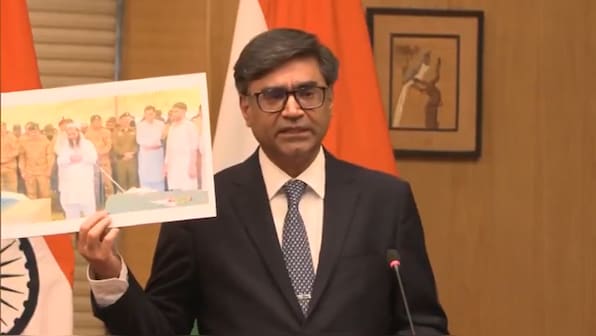)
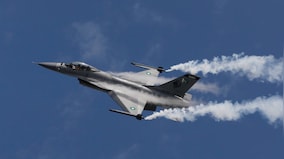)
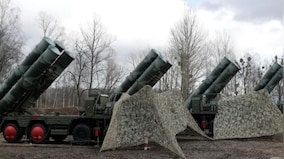)
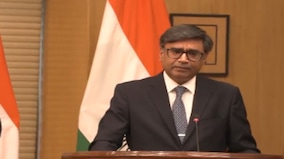)
)
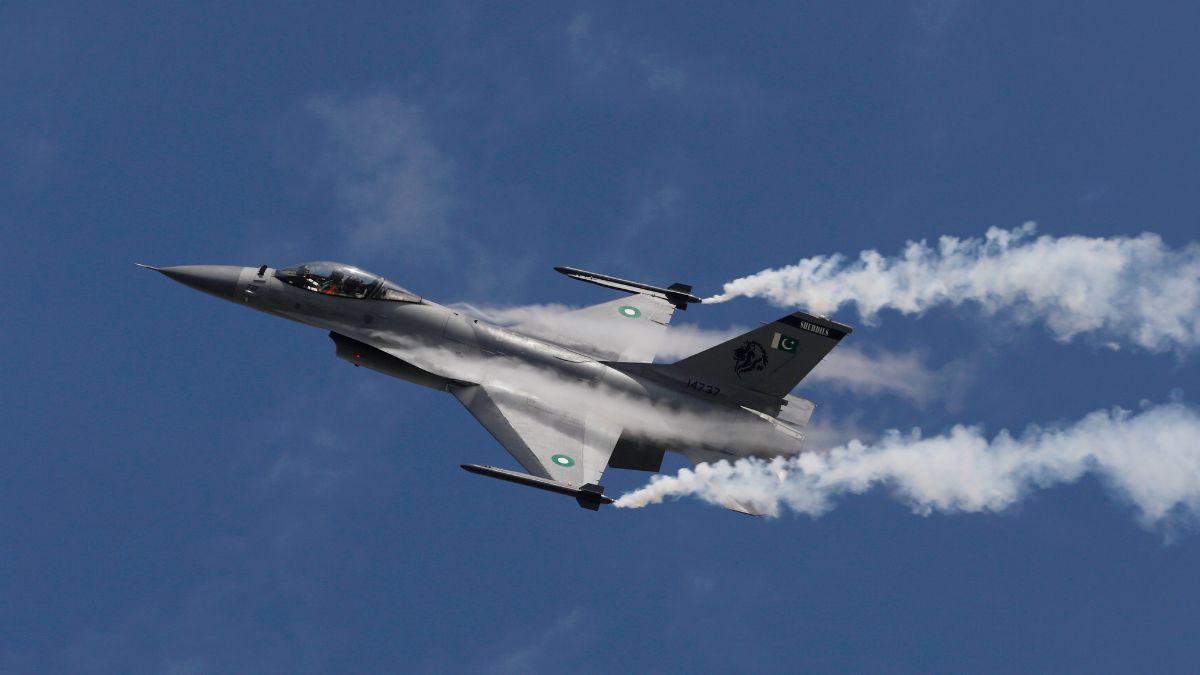)
)
)
)